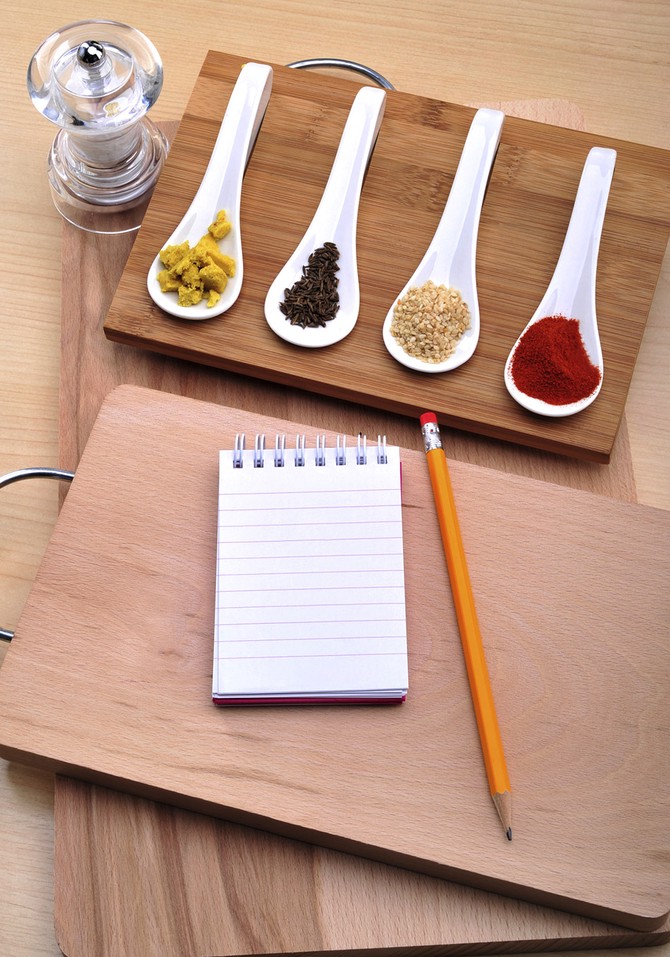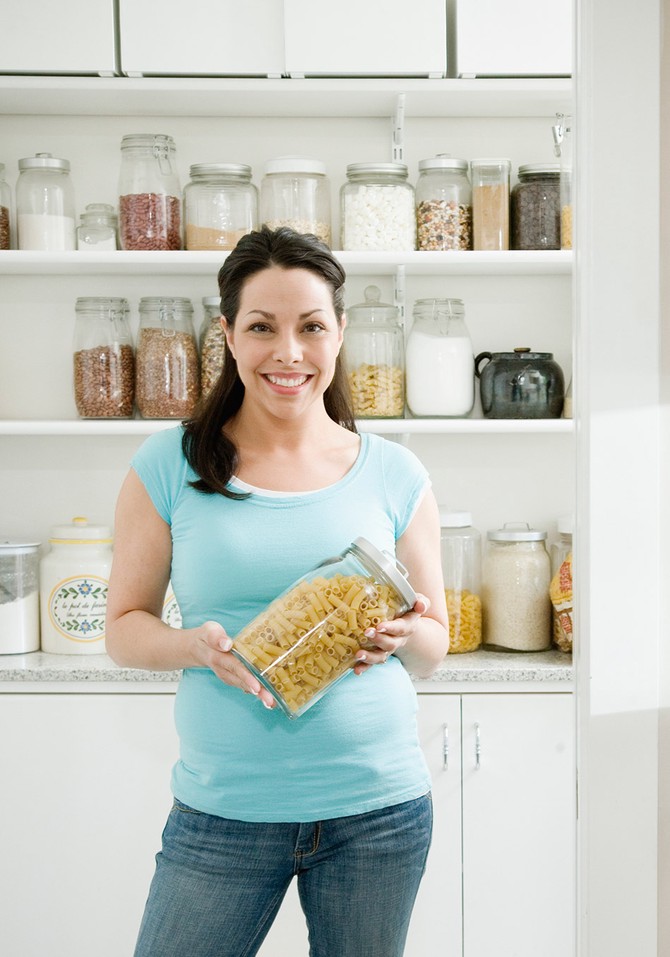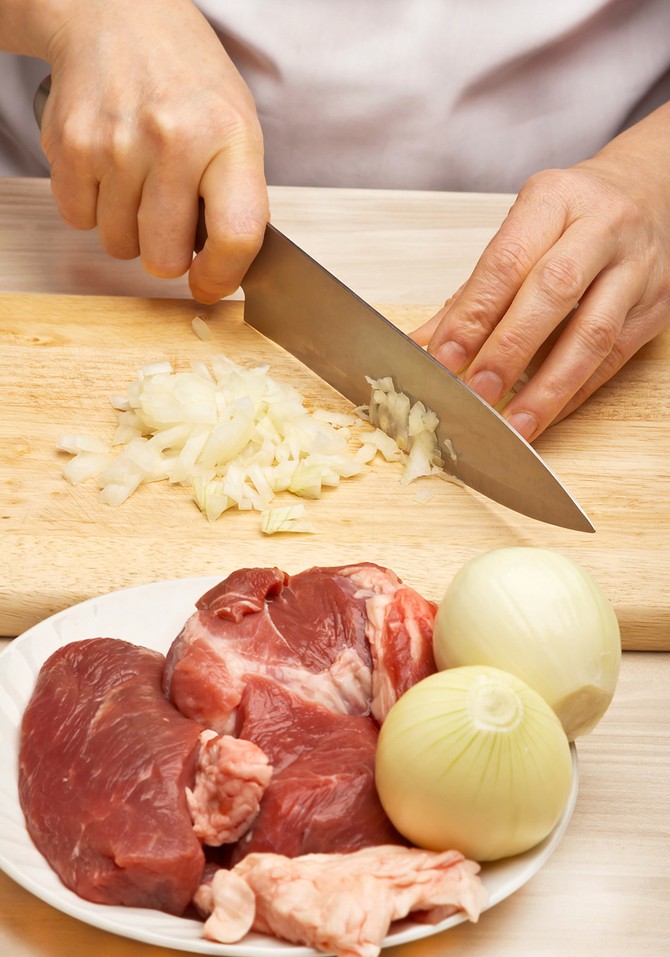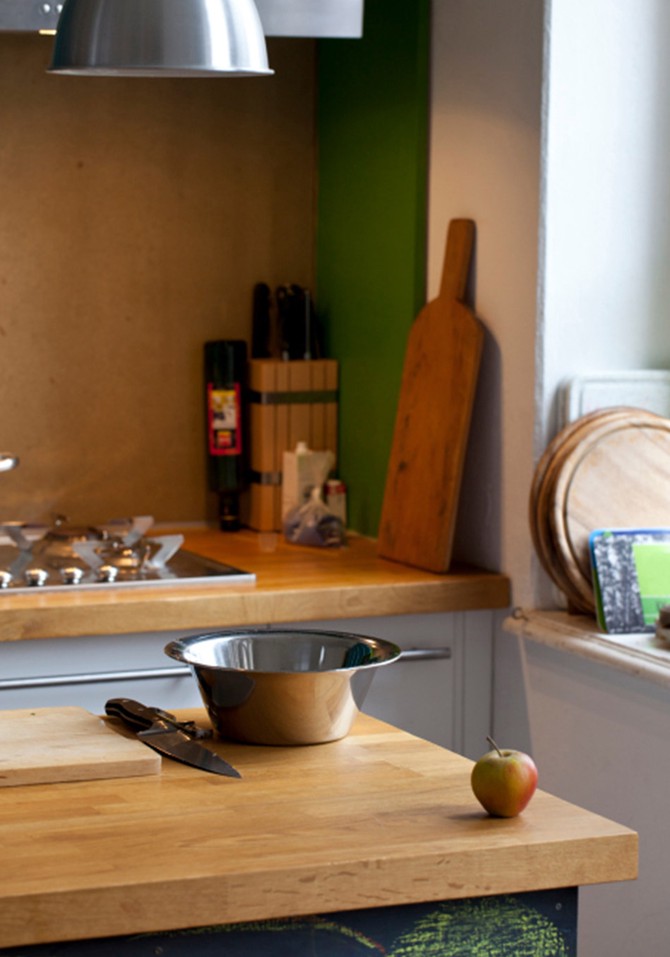5 Ways You're Making Dinner Prep Harder Than It Needs to Be
These seemingly small mistakes can really add up, making you put in more effort and time than is necessary when cooking a meal.
By Lynn Andriani

Photo: schafar/iStock/Thinkstock
You're Measuring Everything
Either stop measuring ingredients and eyeball the amounts (recommended for non-type-A personalities), or look at your recipe ahead of time and measure everything out then; so, when it's time to make dinner, the spices for your curry are already portioned out, mixed in a little cup and waiting for you to throw them into the pan. This list gives some helpful starting points for learning how to guesstimate; for instance, a tablespoon is about the size of one thumb tip. (Note: It's probably best not to wing it when baking.)

Photo: umbertoleporini/iStock/Thinkstock
You're Not Taking Care of Your Knives
We tend to equate cost with quality when it comes to knives, but a $30 chef's knife can give you the same end result as a $400 version, provided you take care of it. Here's what does matter, as explained by a knife expert: the cleaning, storage, protection and sharpening of the blade. Since it will take you much more time to mince garlic with a dull edge than it will with a sharp one, knife maintenance is key to efficient meal prep. Here's how to keep your knives in top shape.

Photo: Fuse/Thinkstock
You've Got a Disorganized Pantry
You can't find the balsamic vinegar, and where is that box of penne? Also, how many little jars will you have to pick up and look at before you zero in on the oregano? Take 20 minutes on a weeknight or weekend to group all your baking ingredients together, all your pastas and grains into one area and, if you really want to go crazy, label the tops of your spice jars. Taking 20 minutes now will save you much more time than that in the long run.

Photo: ladi59/iStock/Thinkstock
You're Prepping the Meat First
Even though a recipe may begin by telling you to trim the fat off the steak, pound the chicken or cut the fish into strips, you'll save yourself some work and time if you skip ahead and chop the vegetables first. That's because if you prep the (raw) meat or fish before anything else, you'll either need to get out a new knife and cutting board for the veggies, or wash both tools before moving on to the carrots and onions.

Photo: Martin Poole/Photodisc/Thinkstock
You Keep Walking Over to the Trash Can
File the garbage bowl under least-glamorous-but-possibly-most-useful kitchen tool. Any small-to-medium-size vessel works (it could even be a plastic takeout container). Just set it next to your cutting board as you work, and chuck in whatever scraps accumulate as you prepare the meal. That might be onion and garlic peels, avocado pits, the stems from herbs, the ends of carrots, the twist-tie on the radishes...you get the idea. Having a mini-trash within arm's reach saves you having to carry the cutting board over to the garbage can to clear it off after chopping each vegetable. (And while we're on the subject: You can skip trimming most vegetables.)
Published 12/10/2014

